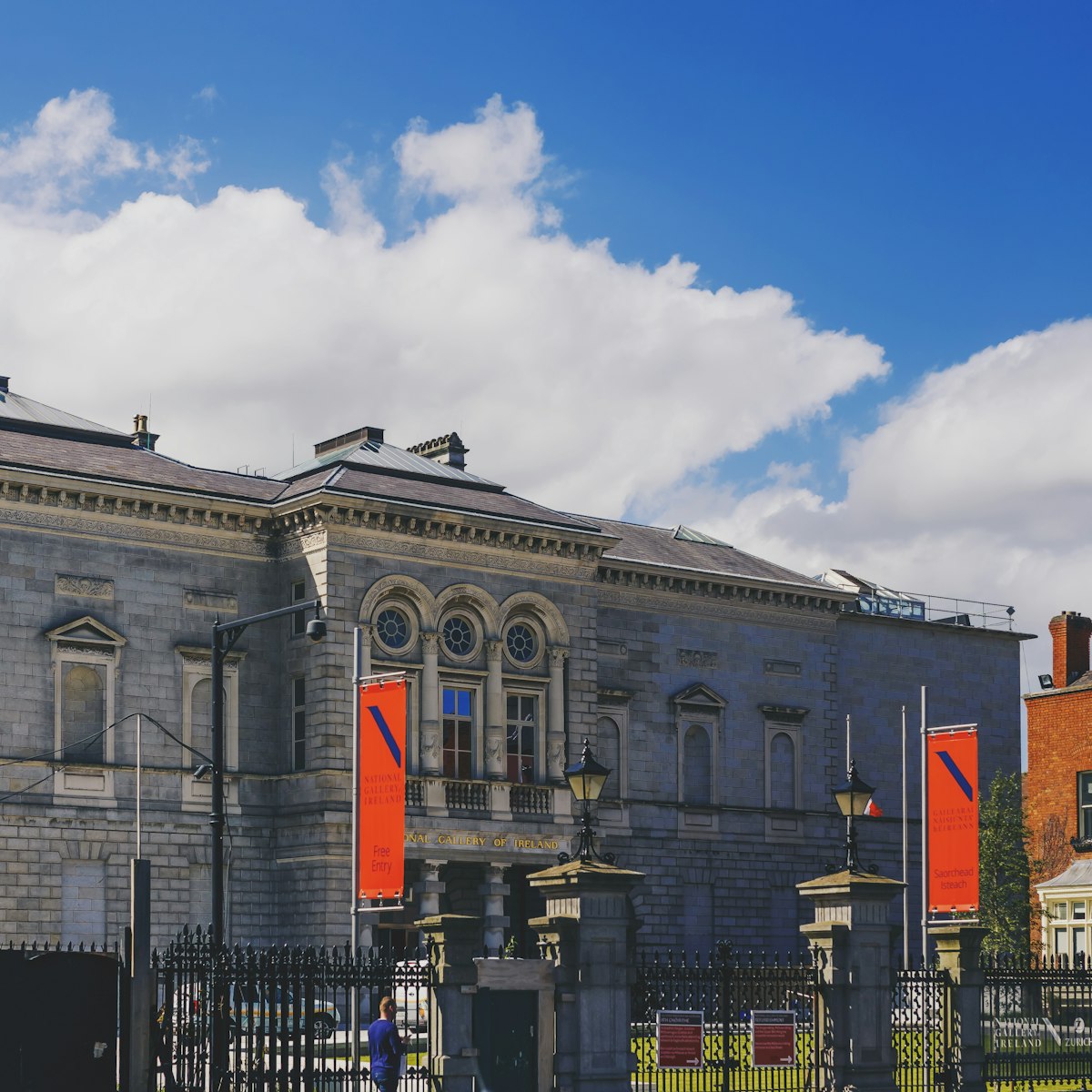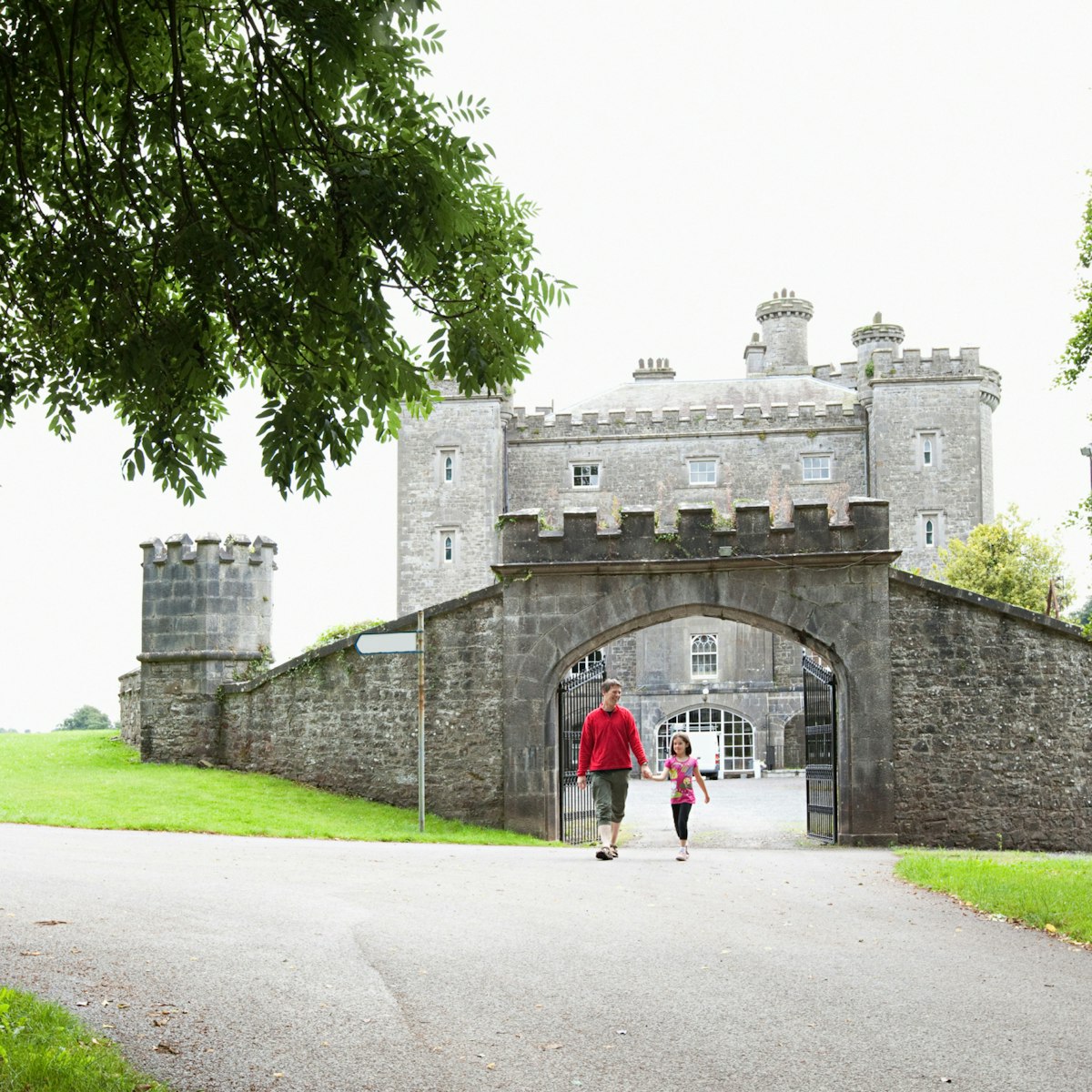The early 19th-century Royal College of Surgeons has one of the finest facades on St Stephen’s Green. During the 1916 Easter Rising, the building was occupied by rebel forces led by the colourful Countess Markievicz (1868–1927), an Irish Nationalist married to a supposed Polish count. The columns are scarred with bullet holes. Today it continues to produce doctors, and is especially popular with students from overseas.
Royal College of Surgeons
Lonely Planet's must-see attractions

26.12 MILES
Newgrange is one of the most remarkable prehistoric sites in Europe, famous for the illumination of its passage and tomb during the winter solstice sun…

0.4 MILES
Trinity's greatest treasures are found within the Old Library and the incredible Long Room is one of the most photographed rooms in Dublin, for good…

1.96 MILES
If you have any desire to understand Irish history – especially the long-running resistance to British colonial rule – then a visit to this former prison…

0.43 MILES
Trinity College Dublin is Ireland's most prestigious university, a collection of elegant Georgian and Victorian buildings, cobbled squares and nature…

0.45 MILES
A magnificent Caravaggio and a breathtaking collection of works by Jack B Yeats – William Butler Yeats' younger brother – are the main reasons to visit…

28.42 MILES
Slane Castle is a 300-year-old sprawling estate on the banks of the River Boyne in County Meath. The neo-gothic castle and grounds are open to visitors…

1.04 MILES
The most popular attraction in Dublin is this multimedia homage to Guinness. An old fermentation plant in the St James's Gate Brewery has been converted…

0.99 MILES
Explore behind the facade of one of Dublin's famous Georgian townhouses, carefully restored to gently peel back layers of complex social history over 250…
Nearby attractions
0.07 MILES
The Unitarian Church was built in 1863 to house two Unitarian congregations. Although nominally rooted in Presbyterianism, the church is a favourite with…
0.08 MILES
The main entrance to St Stephen's Green is beneath Fusiliers’ Arch, at the top of Grafton St. Modelled to look like a smaller version of the Arch of Titus…
0.09 MILES
You won't recognise him, but this abstract 1967 sculpture by Henry Moore is actually meant to be poet WB Yeats – the clue is in the distinctive cape shape…
0.1 MILES
This statue of the Three Fates by the southwestern corner of St Stephen's Green was presented to the city of Dublin in 1956 by West German president Roman…
0.11 MILES
A bronze figure of legendary Dublin folk singer Luke Kelly (1940–84). It was a gift to the city by Irish cartoonist Gerry Hunt (1936–2018), who had…
0.14 MILES
The centre of St Stephen's Green has a sensory garden for the blind, with signs in Braille and aromatic shrubs and plants that can be handled.
0.15 MILES
St Stephen's Green’s 27 acres is the most popular park in Dublin city centre. Come for a leisurely stroll in elegant landscaped gardens, stay for the…
0.15 MILES
Between the bandstand and the James Joyce statue in St Stephen's Green is a young oak tree at the base of which are scattered the ashes of guitarist Adam…